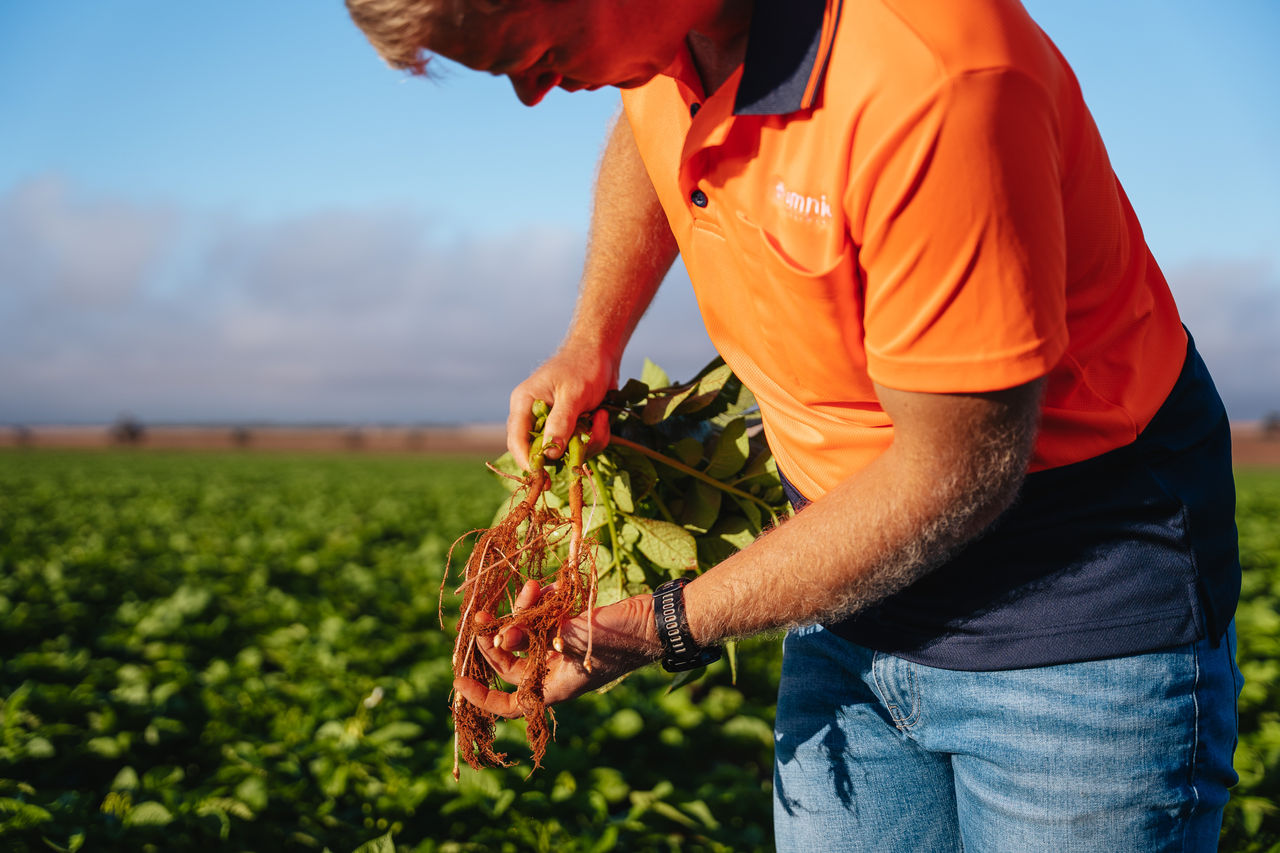If you’ve ever wondered what happens when deep geological history meets modern agricultural science, look no further than Omnia Specialities Australia.

Based in Morwell, Victoria, Omnia is quietly leading a revolution in how growers improve their soils, nutrient efficiency, and ultimately, their yields, all thanks to humic substances extracted from 50-million-year-old brown coal.
It’s not just any coal either. The Leonardite found in the Gippsland Basin, sometimes fondly called “50-million-year-old compost”, is among the richest sources of humic substances on Earth.
As Omnia managing director James Freemantle explains, this Australian Leonardite is geologically younger than the US equivalent. Having been formed in fresh water it is lower in mineral content, and that makes all the difference: it’s more highly oxidised, richer in humic concentration, and, critically, uniquely suited to modern crop production systems.
The science behind it is fascinating. Formed during the Late Eocene to Middle Miocene periods, these coals originated in vast, waterlogged swamps where dense layers of plant and tree matter decomposed under aerobic conditions. Over millions of years, microbial action, pressure, and time transformed this biomass into humate-rich peat, and eventually into brown coal.
This material contains extraordinarily high levels of humic and fulvic acids, known to improve nutrient uptake, soil structure, and microbial activity in agricultural systems.
At the Morwell processing plant, Omnia’s operations team, led by Francois Stander, extracts these compounds using a highly controlled alkaline extraction process. What emerges is a suite of products, including high-concentration liquid potassium humate.
Omnia’s process doesn’t stop at production. Every batch undergoes rigorous quality control.
“Once a batch is made, it’s tested for humic/potassium content, density, and pH. If it doesn’t meet spec, it doesn’t go,” Francois explained.
“This is not just a price-point market, it’s a quality and performance game”.
Independent testing has proven that Omnia's 26 per cent (pc) humate product is among the highest concentrations available globally — a result that underscores its agronomic value in real-world farming systems.
What sets Omnia further apart is its commitment to transparency and scientific rigour. The company partners with globally accredited laboratories, including one in Spain, to provide external certificates of analysis for export clients, particularly those in North and South America, Asia, and the Middle East. These markets are increasingly demanding not just efficacy, but also data-backed consistency.
To keep up with surging demand, Omnia is investing in technology. A new decanting centrifuge, now being commissioned, will reduce the humate separation process from three days to just four hours. This not only increases throughput but improves product consistency by removing more insoluble content.
In essence, Omnia isn’t just selling a soil amendment; it's delivering a precision-engineered input with measurable agronomic value. Their products act as biological and chemical enhancers, not replacements, to traditional fertilisers, improving return on investment and sustainability for growers worldwide.
It’s a global success story rooted in a unique Australian resource. Or, as James puts it; “we’ve taken a geological gift and turned it into something growers around the world can use to grow more from less”.
In a world demanding ever-higher agricultural productivity with lower environmental impact, Omnia is proving that sometimes, the best innovations begin 50 million years ago.
This article was written by Omnia for Seasons magazine.
Disclaimer - important, please read:
The information contained in this article is given for general information purposes only, current at the time of first publication, and does not constitute professional advice. The article has been independently created by a human author using some degree of creativity through consultation with various third-party sources. Third party information has been sourced from means which Elders consider to be reliable. However, Elders has not independently verified the information and cannot guarantee its accuracy. Links or references to third party sources are provided for convenience only and do not constitute endorsement of material by third parties or any associated product or service offering. While Elders has exercised reasonable care, skill and diligence in preparation of this article, many factors including environmental/seasonal factors and market conditions can impact its accuracy and currency. The information should not be relied upon under any circumstances and, to the extent permitted by law, Elders disclaim liability for any loss or damage arising out of any reliance upon the information contained in this article. If you would like to speak to someone for tailored advice specific to your circumstances relating to any of the matters referred to in this article, please contact Elders.